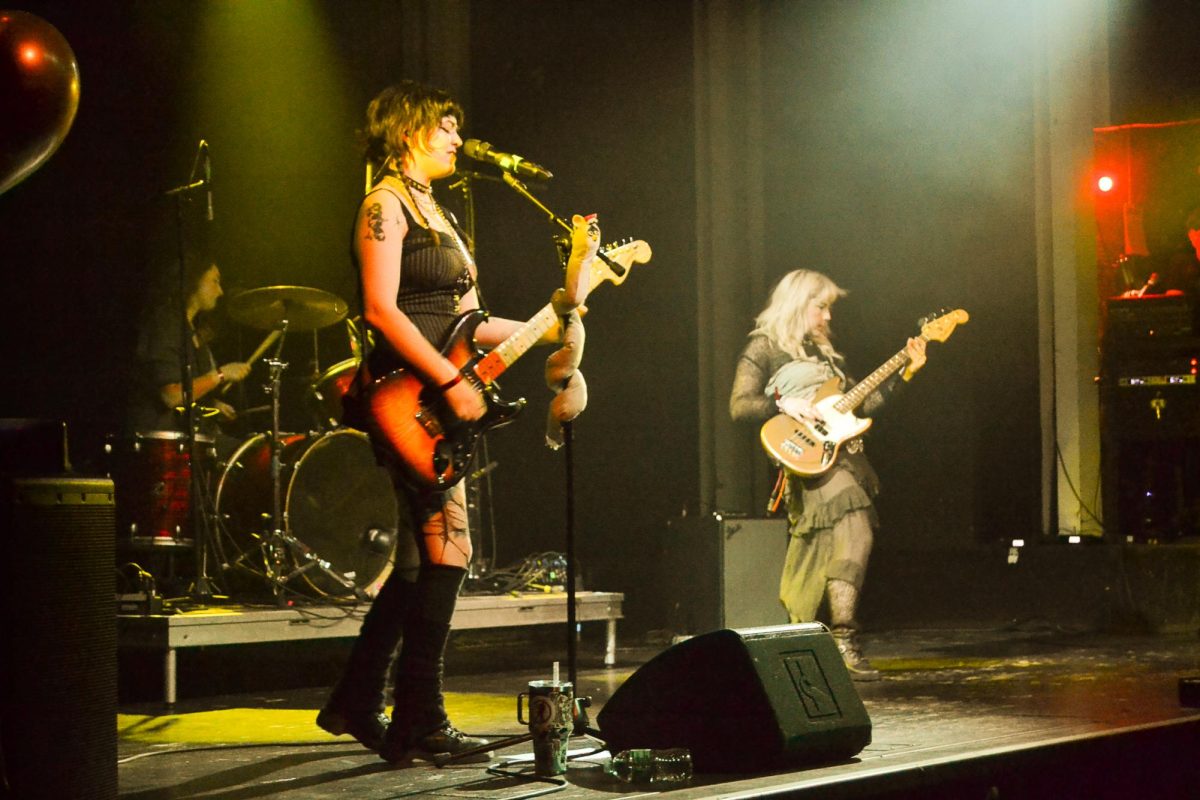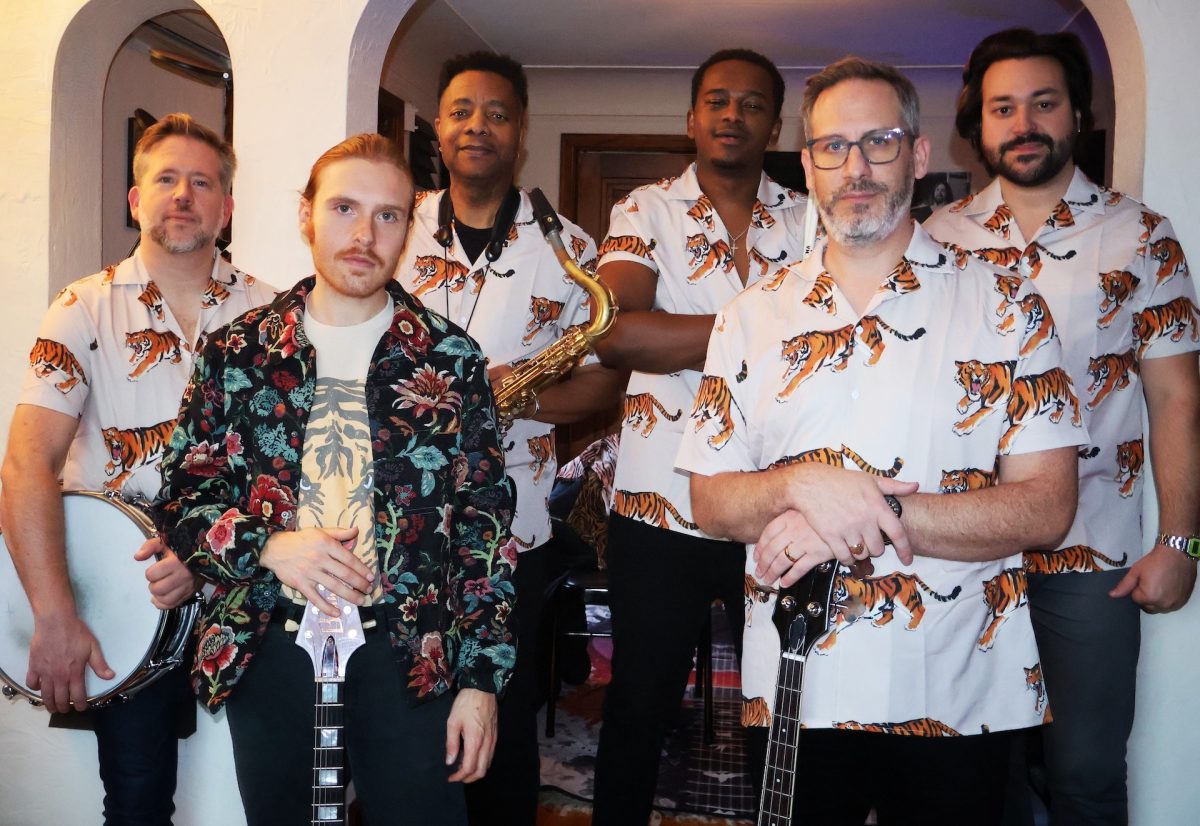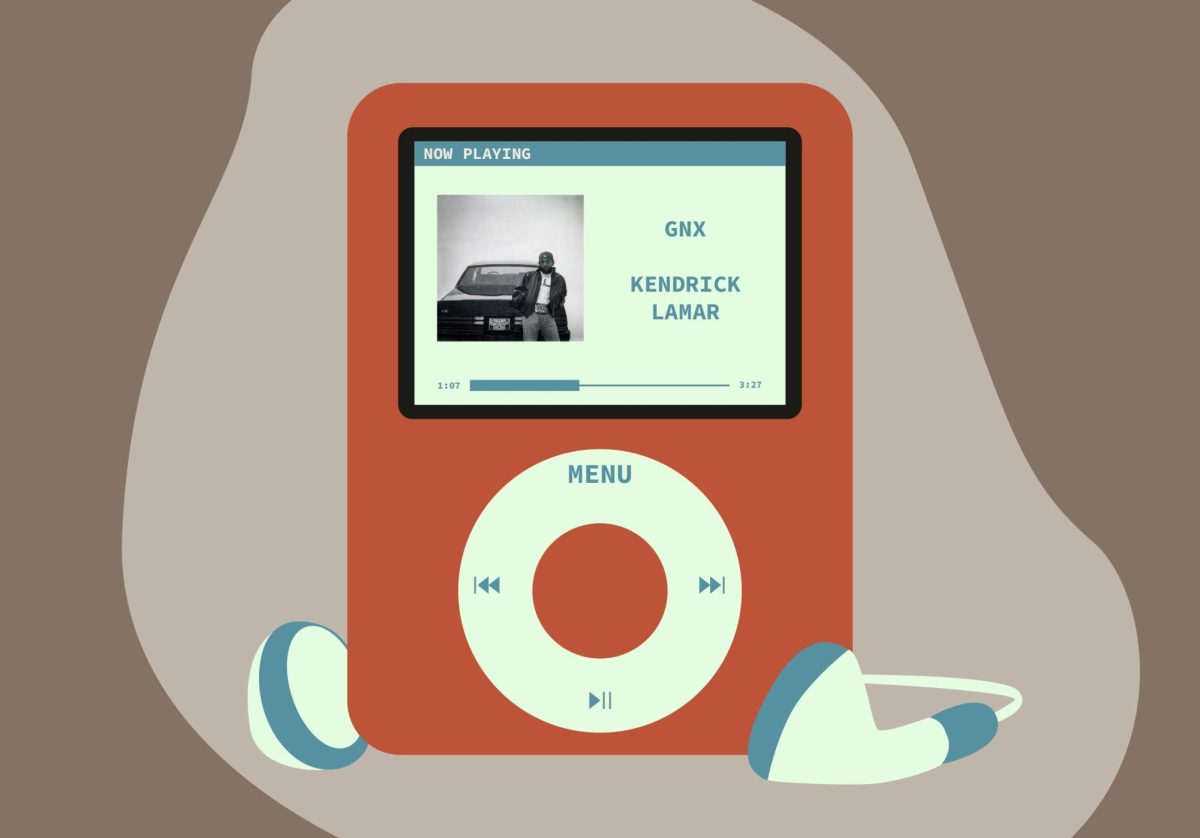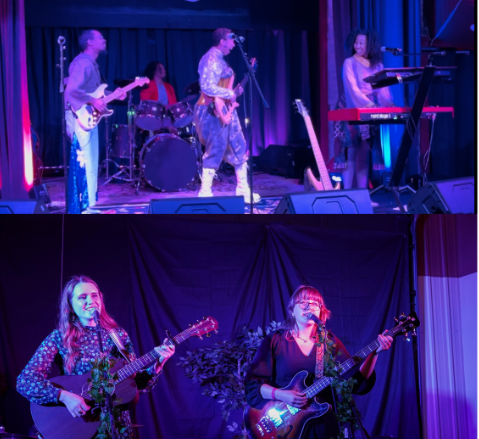While much of The Sadies’ music sounds like it would fit seamlessly into an Ennio Morricone-composed spaghetti western score, don’t assume the band’s members are die-hard fans of Clint Eastwood flicks. Guitarist and vocalist Travis Good underplays any notion of a Sergio Leone film obsession, although he did allow that “We like those movies like anyone else.”
Youthful, exuberant and sporting an almost Wayne Campbell-esque goofy laugh that frequently makes appearances in our conversation, Good is recovering from his birthday party the night before. He’s in a jovial mood after the band’s tour through the United Kingdom in support of its newest album, the brilliant, retro-but-original fifth effort “Stories Often Told.”
On “Stories,” the Toronto-based Sadies’ style transcends cowboy movie soundtracks as much as it leaves behind the confining label of alt-county. “I don’t agree with it, but I don’t mind it,” Good said of the term. “I still don’t know exactly what alt-country is,” he chuckled. “I think it started with Led Zeppelin Hot Dog or something like that,” he laughed.
Though The Sadies have worked with star producer Steve Albini on previous albums, “Stories” brought in Greg Keelor from the Canadian country-rock band Blue Rodeo. Good described “Stories’ ” varied emotional and musical style as “more of a complete album.” The recording departs from previous works, Good remarked, in that “this album took ten days (to record) instead of five days.”
Whereas the previous albums produced under Albini were recorded live, this record shows off The Sadies’ capacity for a more polished and inclusive sound, featuring trumpets and vibraphones. The multi-flavored album escapes conventional rock-country with dark, “Twin Peaks”-like mood music (“A#1”) and jaunty sing-or-dance-along ditties (“Such a Little Word”), stemming from brothers Dallas and Travis Good’s rich vocals and distinctive surf-tumbleweed sound.
When asked what new music Good is listening to, the singer sounds stumped. Besides Beachwood Sparks, Good is hard-pressed to come up with names of favorite new artists. In a hushed, almost guilty tone, he confessed, “I really don’t listen to a lot of ’em. Let me think, there’s gotta be someone new Ö how ’bout you ask me something else and I’ll think about it for a while?”
Good never did get back to me on that but easily talked about his appreciation of the inevitable Byrds and Johnny Cash comparisons The Sadies constantly get. “I’m flattered, yeah,” said Good, while adding, modestly, that the praise is mostly unwarranted.
Along with the band’s appreciation of 1960s-era music, the boys also have a tendency to dress sharply and similarly. “There’s a little bit of a dress code, yeah,” admitted Good. “Usually suits, ties optional. When we used to perform with my dad, he always told me to tuck my shirt in.”
Even The Sadies’ album art and liner notes have an early 1960s, folk-rock feel. A tan and black watercolor portrait of the band graces the cover with retro-stylized lettering.
Curiously, in the liner notes’ thank-yous, the word “Minneapolis” stands all alone. “Minneapolis feels like Canada to me. It’s cold and people are friendly,” Good said. “When we started making the (thank-you) list, there were just so many names of people from Minneapolis that we said, ‘this is crazy, we’re gonna miss somebody,’ ” he said. So they decided to thank the city, in its entirety, just to be safe. “The 400 Bar, playing there, and going to parties in Minneapolis,” he said, “There’s just a lot of friends there.”
The Sadies will perform with MC Paul Barman and Sixth on the Bill at 9 p.m. Saturday at the 400 Bar, (612) 332-2903, 21+, $10.
Brianna Riplinger welcomes comments at [email protected]







